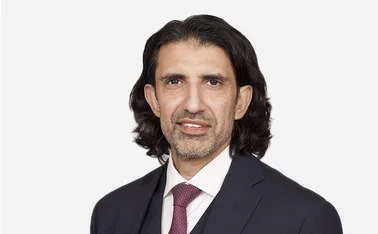
Coface downgrades Greece and Cyprus

Despite a slowdown compared with 2010, Coface is expecting the steady pace of growth of emerging countries to continue, forecasting their economies to grow at 5.7%, in 2011.
This contrasts with its growth forecast to 1.8% for developed economies, for the same period. This buoyancy of emerging economies goes hand in hand with improvements in the business environment.
Coface said central Europe saw a marked improvement in the business environment and three central European countries have been upgraded: Poland (from A3 to A2), Lithuania (from A3 to A2) and Macedonia (from C to B). These three countries have in common an improvement in the access to companies' financial information.
Poland and Lithuania have benefited from the process of their integration into the European Union. Lithuania has developed its infrastructures. Whereas in Poland, there have been notable improvements in the quality of regulation, due to the streamlining of administrative procedures and tax system and an improved supervision of the banking system. Macedonia, which plans to join the European Union, has made great strides in terms of governance, reducing corruption and increasing respect for the law.
In contrast, the business environment assessments of Greece and Cyprus have been downgraded to A3, which places them among the worst rated countries in the European Union. Only Romania and Bulgaria (A4) have worse assessments. Coface found access to financial information to be difficult and remarks a worsening of companies' payment behaviour, which indicates greater difficulties concerning debt collection. Cyprus also stands out for its opaque banking system.
Greece(B) and Cyprus (A4) have also seen their country risk assessments drop a notch. These downgrades reflect the impact of the Greek sovereign debt crisis on the country's companies, which is conveyed through various channels: bank credit is difficult to obtain by companies and, if obtained, is expensive. The macroeconomic climate deteriorates as the recession deepens.
Lastly, companies are bearing the brunt of the austerity budget plan, which, in some cases, could lead to them experiencing overdue payments owed to them by the country's administration. Furthermore, Coface notes deterioration in the payment behaviour of Greek companies in 2011. The country risk for Cyprus has increased because of its banks' exposure to the Greek risk.
"Since the launch of its business environment assessment in 2007, Coface has revised the assessments of some 10 countries, reflecting the improvement in its payment records of companies in emerging countries. Upgrades of seven emerging countries support our finding of a gradual improvement in country risk of emerging economies, an improvement that is not solely due to a resilient economic situation. It is also due to more structural developments, that is, the improved governance of these countries," commented Yves Zlotowski, chief economist of Coface.
Only users who have a paid subscription or are part of a corporate subscription are able to print or copy content.
To access these options, along with all other subscription benefits, please contact info@postonline.co.uk or view our subscription options here: http://subscriptions.postonline.co.uk/subscribe
You are currently unable to print this content. Please contact info@postonline.co.uk to find out more.
You are currently unable to copy this content. Please contact info@postonline.co.uk to find out more.
Copyright Infopro Digital Limited. All rights reserved.
As outlined in our terms and conditions, https://www.infopro-digital.com/terms-and-conditions/subscriptions/ (point 2.4), printing is limited to a single copy.
If you would like to purchase additional rights please email info@postonline.co.uk
Copyright Infopro Digital Limited. All rights reserved.
You may share this content using our article tools. As outlined in our terms and conditions, https://www.infopro-digital.com/terms-and-conditions/subscriptions/ (clause 2.4), an Authorised User may only make one copy of the materials for their own personal use. You must also comply with the restrictions in clause 2.5.
If you would like to purchase additional rights please email info@postonline.co.uk








